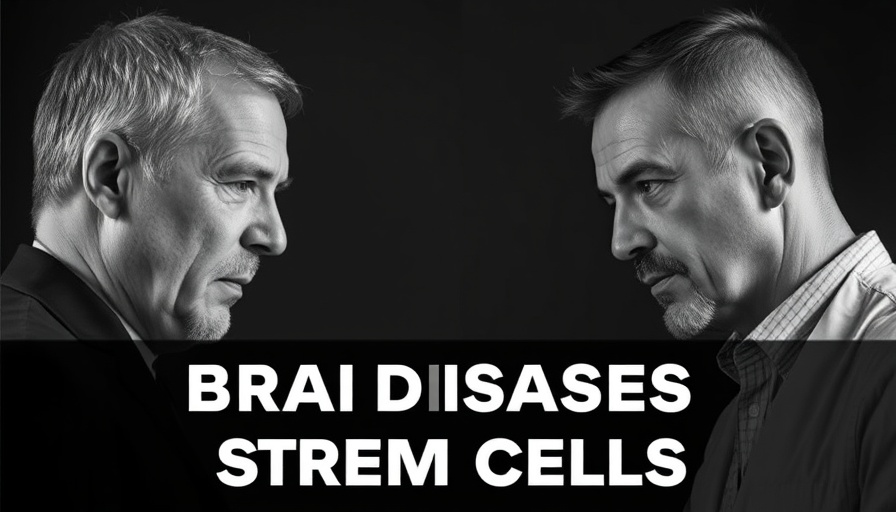
The Promise of Stem Cells in Treating Neurodevelopmental Disorders
Stem cell research is heralding a new frontier in the treatment of complex neurodevelopmental disorders like autism, epilepsy, and schizophrenia. Dr. Sergiu Pașca, a leading scientist in this field, recently discussed his groundbreaking work on stem cell-derived organoids and their crucial role in understanding these conditions. During his conversation on the Huberman Lab podcast, Dr. Pașca emphasized how the rise in autism prevalence, now close to 3%, is closely tied to genetic factors, highlighting the need for effective interventions.
In 'Using Stem Cells to Cure Autism, Epilepsy & Schizophrenia | Dr. Sergiu Pașca', the discussion dives into pioneering research that has significant implications for treating neurodevelopmental disorders.
Understanding the Spectrum of Autism
Autism is not a singular condition, but a spectrum characterized by a range of behavioral traits and challenges. While many individuals with autism lead fulfilling lives, others face profound disabilities requiring lifelong care. The idea of finding a "cure" for severe autism has sparked debate among communities, but Dr. Pașca reassures listeners that the focus is on understanding the underlying biology to create targeted therapies. He elaborates on the complexities of diagnosing autism and how it can be misrepresented as a singular disease. The advancements in genetic research have revealed specific mutations associated with different forms of autism. This insight is vital for developing effective treatments that can greatly improve the lives of those affected, particularly in severe cases where individuals face significant barriers to independence.
The Role of Organoids in Groundbreaking Research
Organoids, miniature organs grown in a lab from stem cells, represent a revolutionary tool for studying human brain development. Dr. Pașca's lab has pioneered the creation of brain organoids, pairing them with assemblids—structures designed to mimic neural circuits. By studying these organoids, researchers can observe how cells communicate and develop, allowing for targeted therapy development. For disorders like Timothy syndrome, which severely impairs neurodevelopment, organoids are essential for understanding how genetic mutations manifest at a cellular level.
The Future of Neural Treatments: A Collaborative Effort
Dr. Pașca's collaborative efforts with various experts emphasize the importance of shared knowledge in science. With a focus on genetic components underlying mental health issues, researchers are forming consortia to standardize ethical practices and language surrounding this transformative research. This work aims to demystify psychiatric disorders and provide better treatment strategies based on empirical evidence. Through their successes with organoids, the prospect of gene therapy looks promising, paving the way for potential new cures and improved quality of life for patients.
Call to Action: Stay Informed on Mental Health
As science uncovers new horizons in treating neurodevelopmental disorders, it's crucial for health enthusiasts and the general public to stay informed. Learn more about the implications of these advancements for mental health and how ongoing research could enhance the lives of those affected by conditions such as autism, epilepsy, and schizophrenia. By investing in our understanding of mental health, we contribute to a society that embraces knowledge and compassion.
 Add Row
Add Row  Add
Add 


Write A Comment